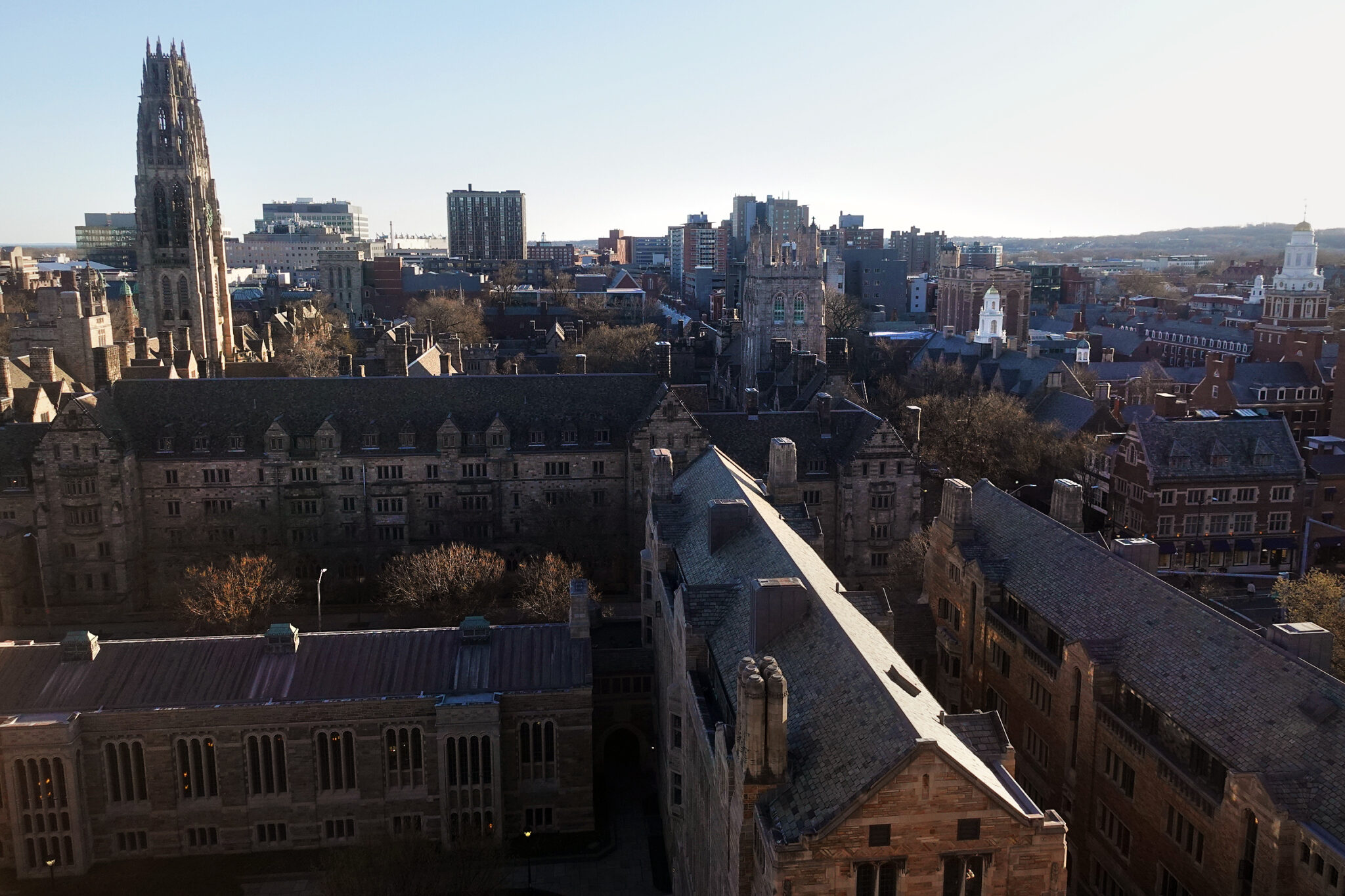Second Circuit Court of Appeals issues ruling in Khan case, opens possibility for sexual assault victims to be liable for defamation lawsuits
After the Connecticut Supreme Court ruled that former Yale student Saifullah Khan could sue the woman whom he allegedly raped for defamation, the Second Court of Appeals issued a decision on Wednesday allowing that defamation suit to go forward. The new ruling now opens the possibility for accusers in University Title IX hearings over sexual assault to be sued for defamation.

Tim Tai, Senior Photographer
Content warning: This article describes sexual violence.
SHARE is available to all members of the Yale community who are dealing with sexual misconduct of any kind, including sexual assault, sexual harassment, stalking, intimate partner violence and more. Counselors are available any time, day or night, at the 24/7 hotline: (203) 432-2000.
The Second Circuit Court of Appeals remanded Saifullah Khan’s lawsuit against the University to a lower court on Wednesday, Oct. 25. The update comes after Connecticut’s Supreme Court ruled in June that Khan — who was originally a member of the Yale College class of 2016 — could go forward with his defamation suit against his accuser because the University-Wide Committee on Sexual Assault hearing Yale held did not qualify as “quasi-judicial.”
The case examined Yale’s proceedings, which in 2019 found Khan “responsible” for sexually assaulting a female peer, who is referred to as Jane Doe, in 2015; the University expelled Khan in January 2019.
With the ruling, Khan’s case now returns to a lower court, where the discovery process will begin. The ruling sets a larger precedent that could open students who file sexual assault accusations with Title IX offices, and choose to puruse a hearing, up to defamation lawsuits similar to Khan’s.
Khan originally filed his lawsuit against the University on Dec. 13, 2019, in district federal court, and the suit against Doe was dismissed in January 2021. On Jan. 14, 2021, Khan then appealed his case to the Second Circuit, which sent certified questions to Connecticut’s Supreme Court.
The Second Court of Appeal’s ruling allows Khan to sue Doe for defamation over statements she made in 2018, but it does not allow him to sue over claims made in 2015 made outside of court because they fall outside the time period in which legal actions can be made, called the statute of repose.
“In light of the Connecticut Supreme Court’s responses to our certified questions in this case, we conclude that Khan’s state-law claims against Doe for defamation and tortious interference with contract should not have been dismissed,” the justices wrote.
With the new ruling, Khan said that he plans to release Doe’s identity, writing on X — the social media platform formerly known as Twitter — that the Second Circuit gave the “gift of justice.”
“In the spirit of truth, ‘Jane Doe’ will soon have a name,” Khan wrote in the post on Wednesday.
Khan’s case dates back to 2015, when Jane Doe, then a senior, accused Khan of sexual assault on Halloween night. Khan denied the allegations, saying the two engaged in consensual sex. Khan was arrested by Yale Police in November 2015 and suspended from the University indefinitely.
Khan’s case went to criminal court, where a six-person jury found Khan not guilty on March 7, 2018. The University then allowed Khan to return to campus in fall 2018, until he was suspended again after new allegations arose. The University-Wide Committee on Sexual Assault found Khan “responsible” in that second round of Title IX proceedings. He was expelled in January 2019.
In his lawsuit against Yale, Khan alleged that the UWC proceedings lacked procedural safeguards such as cross-examination of the accuser and the ability for the accused to call witnesses, allowing him to sue for defamation.
He would not be able to do so if the court had deemed the case to be “quasi-judicial,” but the lack of those safeguards prompted the Connecticut Supreme Court to rule on June 27 that Khan’s UWC hearings at Yale did not hold “quasi-judicial” status — and as such, that Doe would not receive full immunity.
The state Supreme Court then tossed the case back to the federal district court, where justices released Wednesday’s ruling.
“We are thrilled by the ruling and look forward to holding Yale accountable for what it did to an exceptional young man,” Norman Pattis, Khan’s lawyer, wrote to the News.
A similar court ruling in Colorado earlier this month cited “Khan v. Yale” in its decision to restrict immunity for accusers in a high school Title IX case.
The Colorado Court of Appeals ruled that a high school’s Title IX proceedings did not qualify as “quasi-judicial” and therefore the statements from the accusers — two high school students and their mothers — were not protected by absolute immunity that is typically provided in court testimony.
The state Supreme Court’s June decision raises the question of whether university Title IX hearings might leave accusers of sexual assault liable for defamation lawsuits.
The case bears similarity to the Khan trial, as the accused, Benjamin Gonzalez, was found responsible by the Jefferson County School District Title IX proceeding but acquitted of sexual harassment in criminal court. Gonzalez also filed a lawsuit alleging his accuser of defamation.
The judge, Dean Lum, cited Khan v. Yale seven times in the decision, acknowledging procedural safeguards that both cases lacked in their Title IX hearings. These included the ability to cross-examine the witness or having the meaningful assistance of counsel, which Lum wrote, “can potentially destroy the accused’s educational, employment, and other future prospects.”
“The right of the accused to receive fundamental fairness before imposing such consequences is no less important than the right of the victim to seek justice,” Lum wrote in his decision.
In his lawsuit, Khan accused Yale of breach of contract, breach of privacy, emotional distress and reputational harm; he sued for $110 million.
The Second Court of Appeals oversees the states of Connecticut, New York and Vermont.







